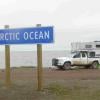Sure, I can do that. I don't think you will like the results though. Let's start with the lowest heat setting, 600W. Watts is a power measurement, the result of multiplying Volts times Amps. So 600W = 60*10 = 6*100, or in this case, 12V*50A or 120V * 5A. 100AH = 50A * 2 Hours.
Your 100AH lithium battery, if you could use all 100AH, would give you 2 hours at 600W of heat. That's it.
Now that won't happen, because you have 5% or so power loss from converting 12V to 120V, and will be running some lights/etc and want a bit of safety margin built in.
Another factor is your choice of a 1000W inverter. You can't even use this heater at full power. 900W is near the max output of your inverter. (This is why I have an AIMS 3000W Pure Sine inverter for our 1800W induction cooktop). If you decide to get a bigger inverter so you can run the heater at full power, keep in mind that the lithium battery has a BMS which limits the maximum draw on the battery. That's why I have two Battle Born 100AH batteries, they can put out 100A each, allowing me 200A * 12V = 2400W of max power draw.
Let's run through the math for my induction cooktop at 1800W to help drive this home. 1800W = 12*150A. If I run the cooktop for one hour, I'll have 50AH left (assuming no losses or reserve power). Make sense?
Granted your heater won't have to run all the time, but still, the ability to draw large amounts of electrical power from a truck/camper is possible if your battery bank is big enough, but your recharge times get longer too. I have 330W of solar that I've seen upwards of 300W from even up here in frozen Calgary this spring. 300W is going to take how long to recharge my one hour of cooking time? 300W = 12V*25A. 150AH = 25A*6 hours. Possible, but most of a sunny day.
And this is for a piddling small cooktop/heater, never mind an EV!!!
Edited by Vic Harder, 05 April 2023 - 11:47 PM.














